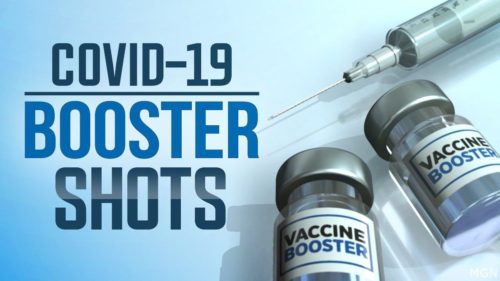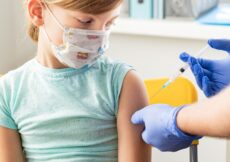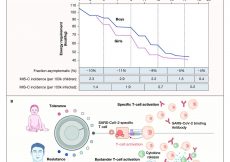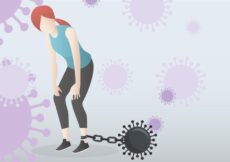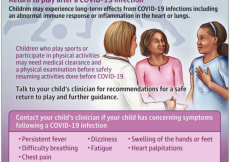April 5th, 2022
Yesterday on The PediaBlog, we were excited to learn that the long wait for a safe and effective mRNA vaccine against COVID-19 for children under the age of 5 may soon be over. Last week, Moderna announced it will submit a request for FDA approval of its mRNA vaccine for use in children ages 6 months to 6 years “in the coming weeks.”
For parents and grandparents, there was another important bit of news: The FDA last week approved a second booster shot of the Pfizer and Moderna coronavirus vaccines for people over 50 years old. That means that fully vaccinated people who have received their initial 2-dose series of mRNA vaccines (or single dose of J&J) followed by a booster dose can receive a second booster as soon as 4 months later.
The FDA also granted approval for a second booster dose for immunocompromised people 12 years old and up. Robert Preidt and Robin Foster explain why boosters are important for both vulnerable groups:
“Current evidence suggests some waning of protection over time against serious outcomes from COVID-19 in older and immunocompromised individuals. Based on an analysis of emerging data, a second booster dose of either the Pfizer-BioNTech or Moderna COVID-19 vaccine could help increase protection levels for these higher-risk individuals,” Dr. Peter Marks, director of the FDA’s Center for Biologics Evaluation and Research, said[…]
If a major wave of COVID-19 surfaces in the next few months, a second booster dose for older Americans could save thousands of lives and prevent tens of thousands of hospitalizations.
Emergency physician and public health expert, Dr. Leana Wen, urges everyone 12 and older to get their first booster dose with one of the two approved mRNA vaccines as soon as they are eligible (at least 4 months after the initial mRNA series or 2 months after the single-dose Johnson & Johnson vaccine; only Pfizer is approved for teens 12-17) — a precaution too many have neglected up until now:
First, I want to emphasize the importance of getting the first booster dose. According to the CDC, about half of Americans eligible for that first booster have not yet received it. That includes an astonishing 1 in 3 people 65 and older.
There is ample data that shows how important the initial booster is, especially against the Omicron subvariants, including the now-dominant BA.2 strain. During a time when BA.1 was the main variant, the effectiveness of two doses of the vaccine against severe disease dropped to 79%, according to a CDC study. The effectiveness of three doses remained high, at 94%.
The decision to get a second booster shot is not as straightforward as getting the first, says Dr. Wen. Each person’s medical risk factors should be considered:
If you are elderly and have multiple medical conditions, you are more likely to become severely ill due to Covid-19. Certainly, if you are moderately or severely immunocompromised, that should tip the scales in favor of getting the additional booster dose now.
On the other hand, if you are generally healthy, you are still very well-protected from severe illness due to the protection from the vaccine and the initial booster dose. It’s not as urgent to get the booster, and there may also be an advantage to waiting.
With new COVID-19 cases continuing to drop and Americans resuming normal activities and planning summer get-togethers, Dr. Wen advises not trying to time your boosters based on upcoming events:
If you have not yet had your initial booster, get it now, because that first booster is important to maintain strong protection against severe disease. Don’t wait on that first booster. I think it’s hard to time a second booster around an event, and it would make more sense to time it around an expected surge.
That said, I can understand why people would want to be better protected for big events. Remember that there are other tools at our disposal to do so. If you want to be extra cautious, requiring vaccines and then testing all guests prior to getting together indoors will substantially reduce risk.
Know where you could access treatment in case you do get infected. And let’s not forget masks – a high-quality mask (N95 or equivalent) protects you even if others around you are not masking. Boosters are one very important tool that can complement these other tools to help us reduce our individual risk.
Enjoy this COVID lull while you can. New surges are on the horizon, say public health experts, and now is the best time to prepare for them. We’ll discuss how to prepare for the next wave tomorrow on The PediaBlog.
Read the CDC’s updated guidance on COVID vaccine booster doses here.

